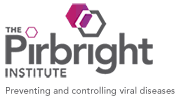About Cookies
Cookies are small text files that can be used by websites to make a user's experience more efficient. The law states that we can store cookies on your device if they are strictly necessary for the operation of this site.
For all other types of cookies we need your permission. This site uses different types of cookies. Some cookies are placed by third party services that appear on our pages.
Your Rights
You have the right to withdraw your consent at any time. You can change or withdraw your consent from the Cookie Declaration on our website.
If you have questions about our use of cookies, please contact us.
